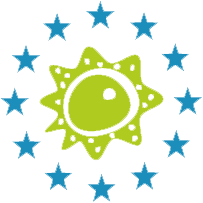Eurosurveillance 25th anniversary seminar: Epidemiology and immunology – from observation to explanation and public health action
The seminar, as part of Eurosurveillance’s 25th anniversary celebrations, will present examples of the interplay between generating hypotheses from observation, researching associated virological and immunological mechanisms, and translating the knowledge gained into public health interventions. It will cover influenza, measles and COVID-19 and present epidemiological, virological/immunological and public health policy perspectives.
Date: 19 November 2021
Time: 10:00- 11.30 CET
Type: open event for all ESCAIDE registered participants.
On many occasions, epidemiologists’ observations of various vaccine preventable disease patterns have prompted the generation of hypotheses about potentially underlying immune mechanisms that support or interfere negatively with vaccination efforts. Through targeted research and collaboration with virologists and immunologists, further light has been shed on the causing phenomena. Translation of this knowledge into practice has supported the development and further study of interventions to prevent infections and control the spread of disease. The ongoing COVID-19 pandemic illustrates the role of different disciplines in understanding transmission patterns and pathomechanisms to support public health action.
Moderator: Daniel Lévy-Bruhl, Santé publique France, St Maurice, France
Agenda:
Welcome note by Eurosurveillance editor-in-chief Ines Steffens
25 years Eurosurveillance: Opening remarks ECDC Director Andrea Ammon
Presentation of the topic ‘Epidemiology and immunology – from observation to explanation and public health action’ by Daniel Lévy-Bruhl
Presentation and discussion: Danuta Skowronski, British Columbia Centre for Disease Control, Canada. ‘Immunological imprinting – the example of influenza’ (epidemiological perspective)
Presentation and discussion: Rory de Vries, Erasmus Medical Center, Rotterdam, The Netherlands. ‘Immune amnesia following infections with the measles virus’ (virological/immunological perspective)
Presentation and discussion: Jean-Daniel Lelièvre, Henri Mondor Universitary Hospital, Clinical Immunology & Infectious Diseases Department, Créteil, France. ‘The role of immunology supporting the design and adaptation of vaccination strategies’ (clinical and immunological perspective)
Round-up and closing remarks.
Moderator
Dr. Daniel Lévy-Bruhl
Daniel Lévy-Bruhl is a medical epidemiologist. After having worked as a free-lance consultant for UNICEF and WHO mainly for the Expanded Program on Immunisation and the Control of Diarrhoeal Diseases Program, he joined the Communicable Diseases and Immunisation Unit of the International Children Center in Paris in 1986. Regarding immunisation programs, his main activities consisted in training activities in epidemiology applied to vaccination, in conducting operational research and in providing expertise regarding vaccination programs to the Ministries of Health of developing countries. Since 1997, he has joined the French National Public Health Agency (Santé publique France) where he was in charge of the Respiratory infections and Vaccination Unit up to August 2021. The main function of this Unit, for the diseases it covers, is to coordinate, at national level, diseases surveillance activities, monitor vaccine coverage, alert the Ministry of Health in case of health threats, provide advice on control measures and contribute to the work of the French NITAG. He is now working partial time as a COVID-19 expert within the Infectious Diseases Department of Santé publique France.
Speakers
Dr. Danuta Skowronski
Dr. Danuta Skowronski leads the Influenza and Emerging Respiratory Pathogens Team at the British Columbia Centre for Disease Control (BCCDC) where she informs surveillance, research and program/policy recommendations for influenza. She is credited with earliest co-development of the test-negative design, a methodology now used globally to monitor seasonal influenza vaccine effectiveness, and that she has further used in the investigation of early childhood imprinting effects. With more than 175 scientific publications, Dr. Skowronski’s pioneering epidemiological work related to influenza vaccine is now also informing COVID-19 vaccine monitoring strategies.
Dr. Rory D. de Vries
Dr. Rory D. de Vries graduated as a biomedical scientist in 2006, obtained his PhD in Virology in 2013 and is currently an assistant professor and workgroup leader at the department of Viroscience (led by Prof. Dr. Marion Koopmans) of the Erasmus MC in Rotterdam. His research focuses on interactions between respiratory viruses and the adaptive immune system. During his PhD, Dr. de Vries extensively studied measles pathogenesis in non-human primates, resulting in multiple publications on how measles virus enters the host, disseminates throughout the hosts, and exits the host, leading to pathogenesis models that are currently quoted in virology textbooks. After obtaining his PhD, Dr. de Vries continued contributing to studies into measles-associated immune suppression by performing clinical observational studies during measles outbreaks. This led to two recent high-impact publications describing the mechanisms underlying measles-associated immune suppression published in Science (‘Measles virus infection diminishes preexisting antibodies that offer protection from other pathogens’) and Science Immunology (‘Incomplete genetic reconstitution of B cell pools contributes to prolonged immunosuppression after measles’).
Jean-Daniel Lelièvre
Professor Jean-Daniel Lelièvre obtained his MD in internal medicine in 2002 and his PhD in immunology in 2002. He is a professor in immunology since 2010 and heads the department of clinical immunology and infectious diseases at Henri Mondor Hospital (Créteil, France) and an INSERM team. His basic research activities focused on T cell apoptosis during HIV infection (PhD), then on Treg biology during HIV infection and the fundamental aspects of T cell development and their perturbation during HIV infection. For several years, his research activity and expertise have been refocused on the field of vaccinology. In this context, he has been involved in research on an HIV vaccine and is in charge of clinical development within the VRI (Vaccine Research Institute) and the EHVA (European HIV Vaccine Alliance). His activities in the field of vaccines also include responsibility for a WP within the EU-JAV (European Joint Action on Vaccination) and the Vaccelerate project (dedicated to research on the COVID-19 vaccine). Finally, he is an expert in the field at national (NITAG) and international level (IVIR-AC WHO), and has conducted several clinical trials in the field of HIV immune therapy or vaccinology.
